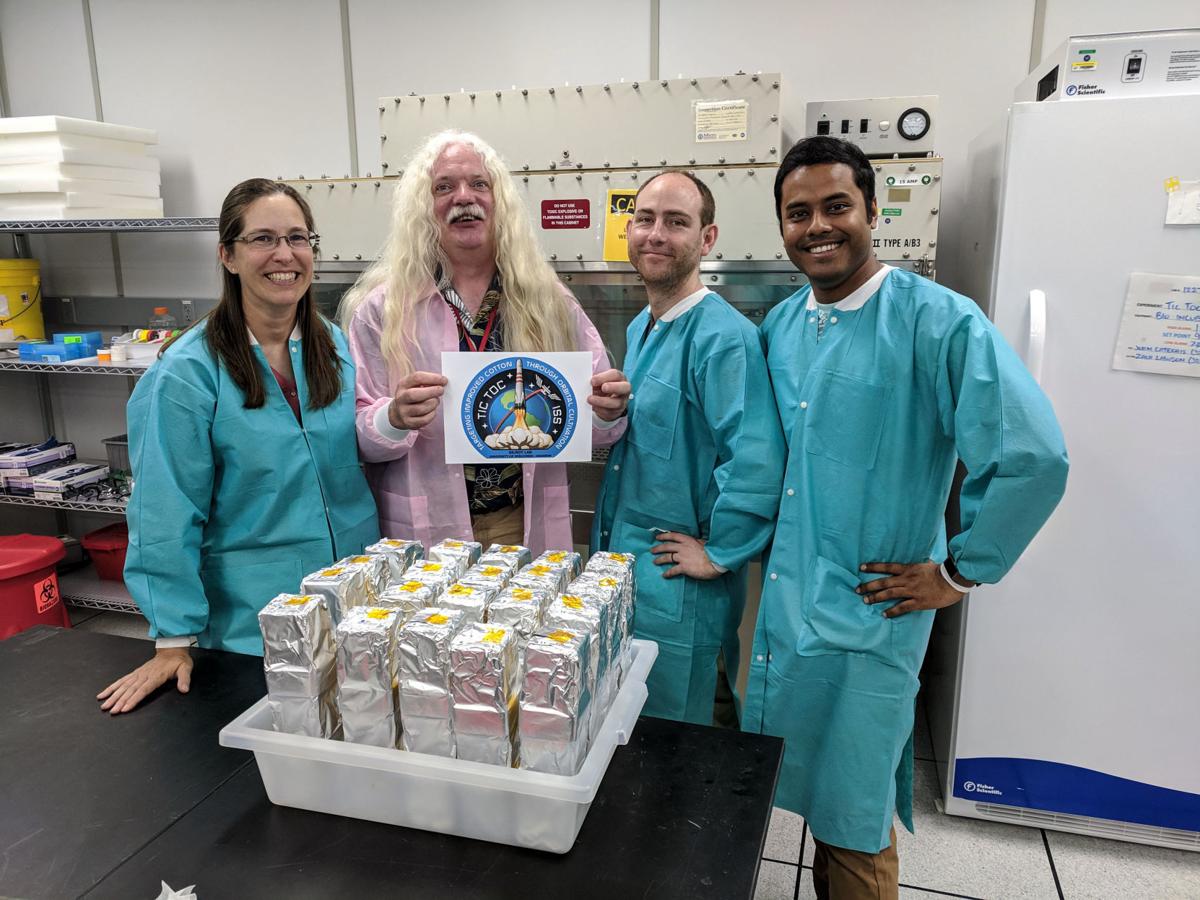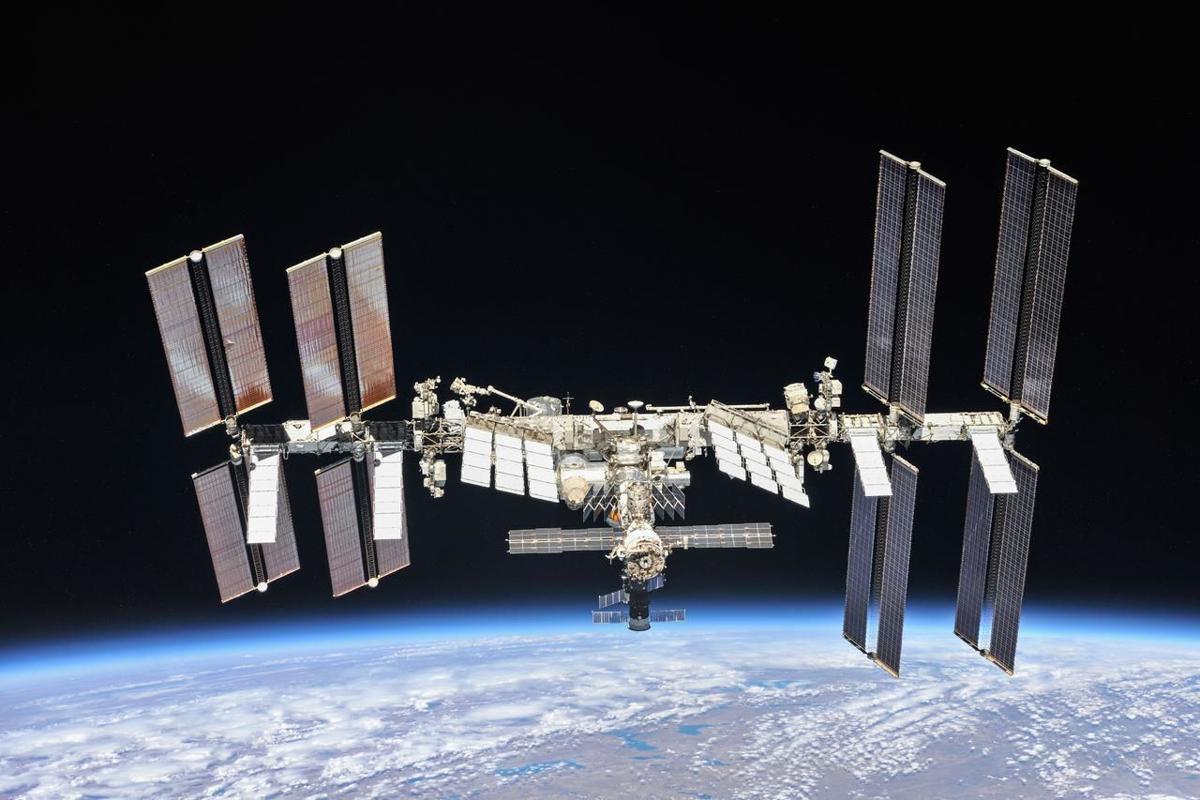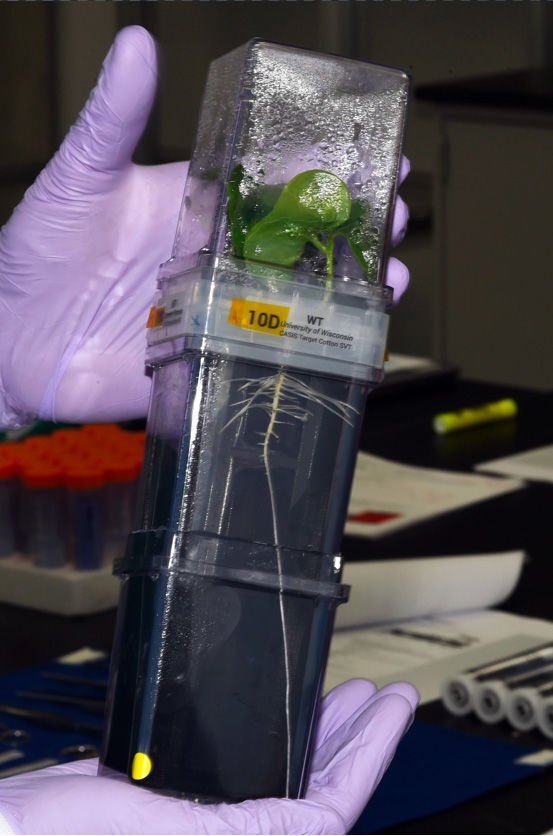
From left, Sarah Swanson, Simon Gilroy, Richard Barker and Arkadipta Bakshi have spent the past week at the Kennedy Space Center preparing to send cotton seeds into space.

Researchers from UW-Madison are sending cotton seeds to the International Space Station in hopes of developing strains of the plant that require less water and fertilizer.

A cotton seedling is kept in a container designed to fly on the International Space Station.
If all goes as planned, Simon Gilroy will be growing cotton in space this weekend.
A SpaceX Falcon 9 rocket scheduled to blast off Thursday from Florida’s Kennedy Space Center will carry 48 seeds from the UW-Madison botanist’s lab to the International Space Station, where astronauts will attempt to grow them in a system developed in Madison.
The idea is to see how gravity affects the root systems, information that Gilroy said could help breeders develop new strains that could be grown more efficiently back on Earth.
“Cotton is a really environmentally impactful plant,” Gilroy said. “It uses a lot of water. It uses a lot of fertilizer. It uses a lot of pesticides. But it has a big economic impact.”

Gilroy
On Earth, gravity guides plant roots down into the soil in search of water. By removing gravity, Gilroy hopes to reveal the other influences that determine which direction the roots grow and how they branch out.
“There’s really only one place to do that,” Gilroy said. “The space station.”
Funded by a grant from Target, Gilroy’s experiment will be part of a 7,300-pound payload, which includes supplies for the space station crew as well as materials to support more than 250 investigations. Thursday’s launch, scheduled for 12:29 p.m. Central Time, will be the 22nd commercial resupply mission for NASA.

